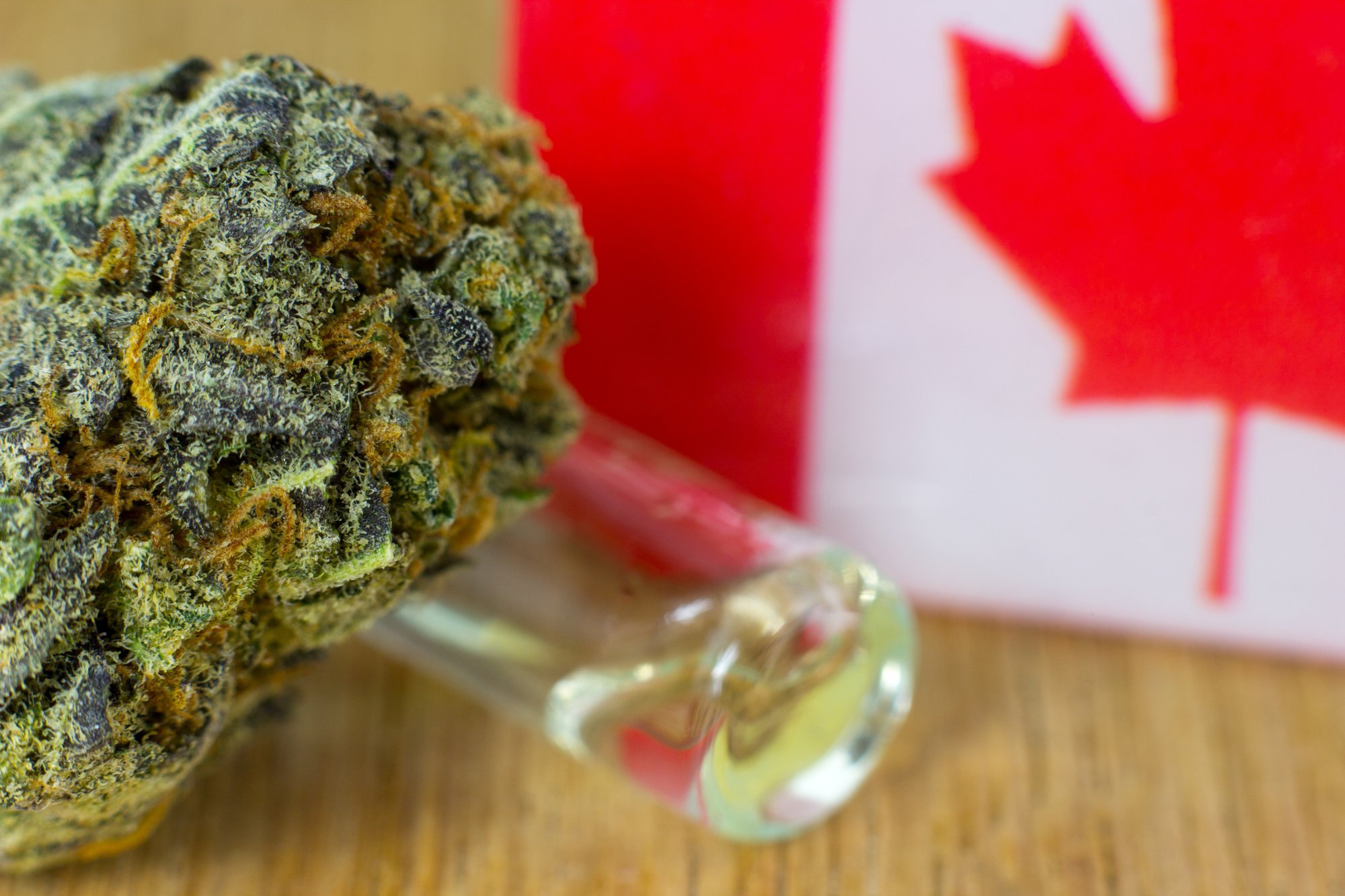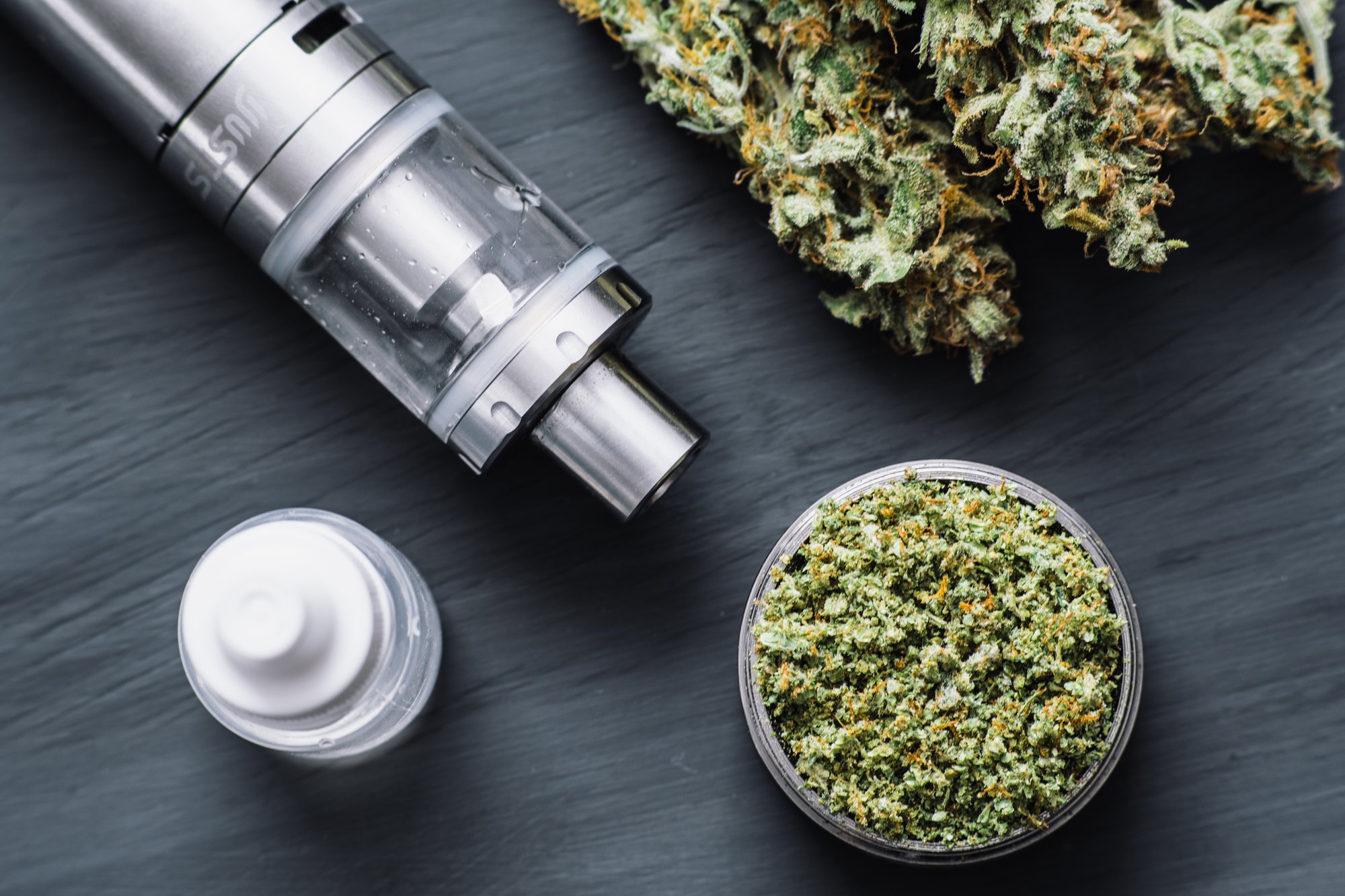The Coronavirus Just Gut-Punched Canadian Pot Stocks

For the past year, there hasn't been a more disappointing industry for investors than cannabis. Following a blazing-hot first quarter in 2019 that saw more than a dozen pot stocks return at least 70%, virtually all marijuana stocks have retraced anywhere from 50% to 95% over the past year.
What's particularly interesting is that the country given the first crack at becoming a global cannabis leader -- Canada -- has completely flopped at the task. Now, with the coronavirus disease 2019 (COVID-19) spreading globally, things for the Canadian pot industry have gone from bad to worse.

A trio of problems have plagued the Canadian marijuana industry
On Oct. 17, 2018, Canada officially became the first industrialized country in the modern era to allow for the sale of adult-use marijuana. The expectation at the time from Wall Street analysts was that Canadian demand would quickly build to between 800,000 kilos and 1 million kilos per year, with Canadian marijuana stocks turning the corner to profitability toward the end of calendar year 2019. It was a time of rapid cultivation expansion and acquisitions galore.
However, the Canadian weed industry has been completely derailed by regulatory issues, financing concerns, and ugly balance sheets.
In terms of regulatory issues, Health Canada was slow to approve cultivation and sales license applications, and delayed the launch of high-margin derivatives, such as edibles, beverages, and vapes, by two months. Meanwhile, provincial regulators in Ontario utilized a lottery system to assign dispensary licenses until the end of 2019, resulting in far too few store openings and a supply bottleneck in Canada's most-populous province.
Second, there have been financing concerns. Even with banks free to lend to a legal cannabis industry, most financial institutions have chosen not to given the many supply bottlenecks plaguing the industry. For instance, in an effort to reduce its expenses, HEXO (NYSE:HEXO) has reduced its peak output potential by about a third and shed 200 jobs. HEXO's also been forced to sell its common stock and/or issue convertible debt to bolster its balance sheet.
Then there are the aforementioned "ugly balance sheets" that have kept marijuana stocks from excelling. For example, Aurora Cannabis (NYSE:ACB) wound up grossly overspending on capacity, pushing its goodwill up to nearly $3.2 billion Canadian at one point. Aurora has since laid off 500 workers, halted construction on two of its largest projects, and planned to sell another greenhouse that was expected to play a major role in production, once retrofit for cannabis plants.

COVID-19's gut punch to the Canadian cannabis industry
In theory, just about nothing could have gone worse for our neighbor to the north following its marijuana launch 1.5 years ago. Then the coronavirus pandemic hit, and it's turned the industry into a virtual dumpster fire.
Just this past week, Ontario's provincial regulators announced that cannabis shops were not considered essential services, and were thus forced to close for two weeks, as of 11:59pm EDT on April 4. Thankfully, two days following the closure, an emergency order allowed pot shops to reopen, albeit only for phone and online orders
Nevertheless, this is a blow in two major respects. First, Ontario is Canada's largest province, accounting for nearly 40% of its population. Even shutting down in-store access to pot shops for two weeks, at minimum, should substantially slow sales in the region.
The dispensary closure announcement wound up hitting Canopy Growth (NYSE:CGC), the largest marijuana stock by market cap, particularly hard given its physical retail presence in Ontario. Canopy Growth opened five Tokyo Smoke retail stores in late 2019 (bringing the total number of Tokyo Smoke operating retail stores in Ontario to seven), and as of January was working on opening an additional five dispensaries.
The second issue being that Ontario ditched its ineffective lottery system for assigning dispensary licenses at the end of 2019 in favor of a more traditional application vetting process. With a meager 52 open dispensaries in a province that could easily accommodate 1,000 retail cannabis stores, April was expected to be the month where real progress was to be made with regard to new licenses issuances and store openings. But with COVID-19 shutting down in-store access, progress on easing a massive product supply bottleneck in Ontario has come to a grinding halt.

But wait -- there's more
Mind you, the partial shutdown of marijuana dispensaries in Ontario isn't the only adverse impact from the coronavirus. It's merely the latest domino to fall.
One the biggest issues that Canadian licensed producers (LPs) like Canopy Growth, Aurora Cannabis, and HEXO have had to contend with is supply chain disruption caused by COVID-19. More recently, the shutdown of nonessential businesses represents a direct threat to the needs of cultivators and pot retailers throughout Canada. But even before mitigation measures for the coronavirus became commonplace in Canada, LPs were dealing with shutdowns throughout parts of mainland China in late 2019 and the early portion of 2020. China is the primary source of vaporizer pen and vape accessories, and it's also a common source to purchase lightning and ventilation equipment used in cultivation.
The coronavirus also put an end to a handful of trade shows that were supposed to take place in Canada. Trade shows are the perfect platform for LPs to show off new products, and can even be a place to forge distribution deals.
We've also witnessed COVID-19 bring international and domestic travel to a near halt. For popular Canadian destinations, such as Vancouver in British Columbia or Toronto in Ontario, it means even less opportunity to sell legal cannabis.
The Canadian pot industry was already troubled well before the coronavirus came along. Unfortunately, it's become the gut punch that pot stocks simply didn't need.
420 Intel is Your Source for Marijuana News
420 Intel Canada is your leading news source for the Canadian cannabis industry. Get the latest updates on Canadian cannabis stocks and developments on how Canada continues to be a major player in the worldwide recreational and medical cannabis industry.
420 Intel Canada is the Canadian Industry news outlet that will keep you updated on how these Canadian developments in recreational and medical marijuana will impact the country and the world. Our commitment is to bring you the most important cannabis news stories from across Canada every day of the week.
Marijuana industry news is a constant endeavor with new developments each day. For marijuana news across the True North, 420 Intel Canada promises to bring you quality, Canadian, cannabis industry news.
You can get 420 Intel news delivered directly to your inbox by signing up for our daily marijuana news, ensuring you’re always kept up to date on the ever-changing cannabis industry. To stay even better informed about marijuana legalization news follow us on Twitter, Facebook and LinkedIn.




